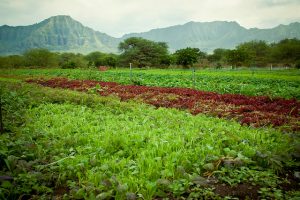Crop traits influence soil carbon sequestration in organic systems
 Photo credit: Justin Cravalho
Photo credit: Justin Cravalho
Soils are the largest terrestrial carbon sink on earth. On average studies find that soils from organic farms are higher in soil organic carbon than soils from conventional farms. Yet, while inputs of organic matter via manure in organic farming are often attributed to this difference they are not enough to full explain this pattern. Now a new study published in the Journal of Applied Ecology has sought to understand how crop leaf and root traits may be contributing to the increase in soil organic carbon in organic farming systems. The researchers conducted a global meta-analysis that compiled data on crop traits including leaf nitrogen leaf-dry matter content, and fine-root carbon and nitrogen and examined how how these crop traits influenced soil organic carbon in organic farming and conventional farming. In line with previous research, they found that organic farms had higher levels of soil organic carbon and greater carbon sequestration rates however they observed this result even when manure application rates were low. While manure use was the main driver of soil organic carbon they also found that crops with low carbon and high nitrogen ratios also played a significant role in increasing soil organic carbon. Conventional farming on the other hand has been shifting towards the use of crops that decompose easily and thus lead to soil carbon loss. The authors conclude “There is solid evidence that ecological intensification of agricultural lands via organic arming increases soil carbon stocks and sequestration rates, compared to conventional farming. This occurs largely because higher external C inputs via manure are applied under organic farming. However, our study indicates that crop residue (leaves and roots) shifts in conventional farming towards higher decomposability (higher N concentration) and soil C losses also modulate that response.”


